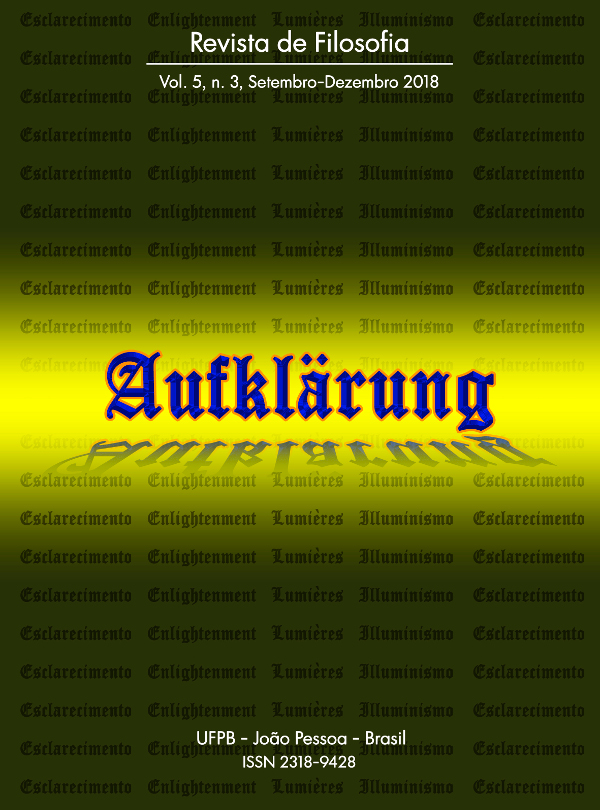Is petitio principii a petitio principii?
DOI:
https://doi.org/10.18012/arf.2016.40801Keywords:
Question begging, circularity, illocutionary logic, speech acts, fallaciesAbstract
In this contribution we focus on the petitio principii fallacy and we review it under the tenets of different typical treatments. Then we submit the claim that petitio principii is indeed fallacious, not because of circularity—as the typical treatments suggest—, but because it fails to follow an order relation in Searle and Vanderveken's illocutionary logic. In other words, we claim that, although petitio principii arguments appear to be circular with respect to their propositional content, they are not circular with respect to their illocutionary acts. And hence, even when petitio principii arguments look like propositional loops and instances of reflexivity, they actually constitute a failure in an order relation, a non sequitur as it were.Downloads
References
AUSTIN, John Langshaw. How to do things with words. Cambridge: Harvard University Press, 1962.
BEGGING THE QUESTION. (2018, June 25). Retrieved June 30, 2018, from https://en.wikipedia.org/wiki/Begging_the_question#Definition.
BEGGING THE QUESTION. (n.d.) Retrieved June 30, 2018, from http://www.fallacyfiles.org/begquest.html.
COHEN, Morris Raphael & NAGEL, Ernest. An introduction to logic and the scientific method. New York: Harcourt, Brace, 1934.
COPI, Irving M. & COHEN, Carl. Introduction to logic. New York: Macmillan, 1990.
HANSEN, Hans Vilhelm. “The Straw Thing of Fallacy Theory: The Standard Definition of 'Fallacy'”. Argumentation, 16(2), 133-55, 2002. Doi:10.1023/A:1015509401631.
IKUENOBE, Polycarp. “In Search of Criteria for ‘Fallacies’ and ‘Begging the Question’”. Argumentation, 16(4), 421-441, 2002. Doi:10.1023/A:1021158632437.
PETITIO PRINCIPII. (n.d.) Retrieved June 30, 2018, from http://philosophy.lander.edu/logic/circular.html.
RITOLA, Juho. “Begging the question: a case study”. Argumentation, 17(1), 1-19, 2003. Doi:10.1023/a:1022908405402.
RITOLA, Juho. “Justified and Justifiable Beliefs: The Case of Question-Begging”. Philosophical Studies, 128(3), 565-83, 2006. Doi:10.1007/s11098-004-7822-1.
SIEGWART, Geo. “Alethic acts and alethiological reflection. An outline of a constructive philosophy of truth”. In Greimann D. and Siegwart G. (Eds.). Truth and speech acts: studies in the philosophy of language (pp. 41-58). New York: Routledge, 2007.
SEARLE, John R. Speech acts: an essay in the philosophy of language. London: Cambridge University Press, 1969.
SEARLE, John R. & VANDERVEKEN, Daniel. Foundations of illocutionary logic. Cambridge: Cambridge University Press, 1985.
SGARAVATTI, Daniele. “Petitio Principii: A Bad Form of Reasoning”. Mind, 487, 749-79, 2013. Doi:10.1093/mind/fzt086.
SUBER, Peter. “Question-begging under a non-foundational model of argument”. Argumentation, 8(3), 241-50, 1994. Doi:10.1007/bf00711191.
TRUNCELLITO, David A. “Running in Circles about Begging the Question”. Argumentation, 18(3), 325-29, 2004. Doi:10.1023/b:argu.0000046731.07528.75.
VAN EEMEREN, Frans H. & GROOTENDORST Rob. “The pragma-dialectical approach to fallacies”. In Hansen, H.V. and Pinto R. (Eds.). Fallacies: classical and contemporary readings (pp. 130-144). Pennsylvania: Pennsylvania State University Press, 1995.
WALTON, Douglas. “Begging the question as a pragmatic fallacy.” Synthese, 100(1), 95-131, 2004. Doi:10.1007/bf01063922.
WRIGHT, Crispin. “(Anti-)Sceptics Simple and Subtle: G.E. Moore and John McDowell”. Philosophy and Phenomenological Research, 65 (2), 330-48, 2002. Doi:10.1111/j.1933-1592.2002.tb00205.x.
Additional Files
Published
How to Cite
Issue
Section
License
Journal general policy
1.This journal works under a Creative Commons License aplied to online journals. That icence can be read in the following link: Creative Commons Attribution 4.0 International (CC BY 4.0).
2.Accordingly to this License, a)the journal declares that authors hold the copyright of their articles without restrictions, and they can archieve them as post-print elsewhere. b)the journal allow the author(s) to retain publishing rights without restrictions.
Metadata Policy for information describing items in the repository
1. Anyone may access the metadata free of charge at anytime.
2.The metadata may be re-used in any medium without prior permission, even commercial purposes provided the OAI Identifier or a link to the original metadata record are given, under the terms of a CC BY license refered for the Journal.







































